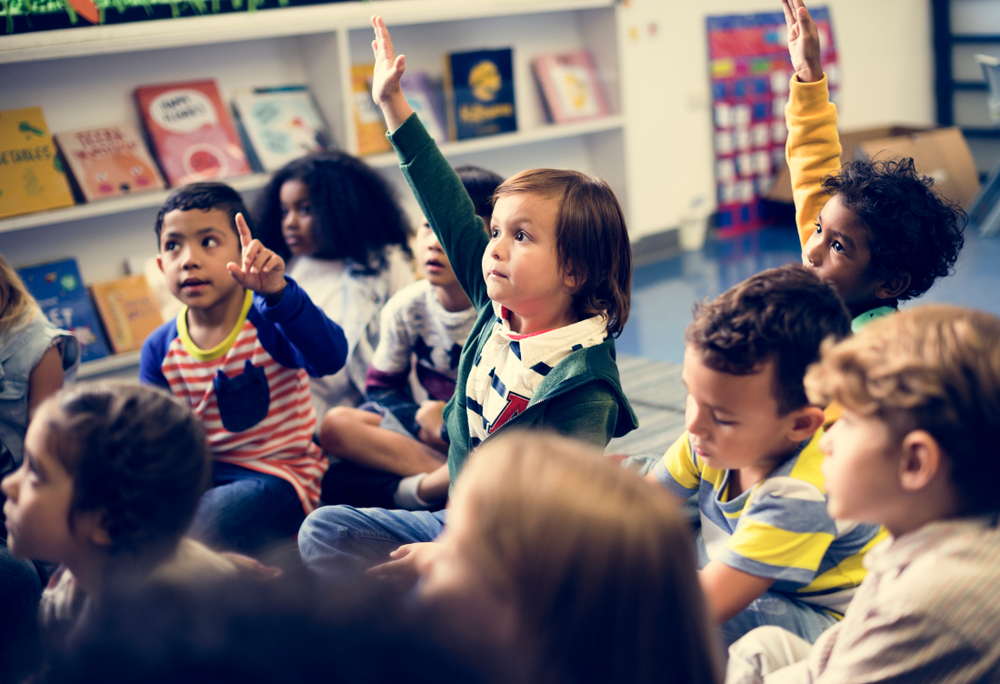Observational skills Normal Science Worksheets for Ages 3-9
13 filtered results
-
From - To
Enhance your child's observational skills with our engaging Normal Science Worksheets, designed specifically for ages 3-9. These fun, interactive worksheets encourage young learners to explore and connect with the world around them. Through a variety of activities, kids will practice observing, describing, and comparing different science phenomena, fostering critical thinking and curiosity. Tailored to support early childhood development, our worksheets align with educational standards, making learning enjoyable and effective. Perfect for parents and teachers alike, these resources promote hands-on learning and help children develop vital skills that form a foundation for future scientific exploration. Start your journey into discovery today!
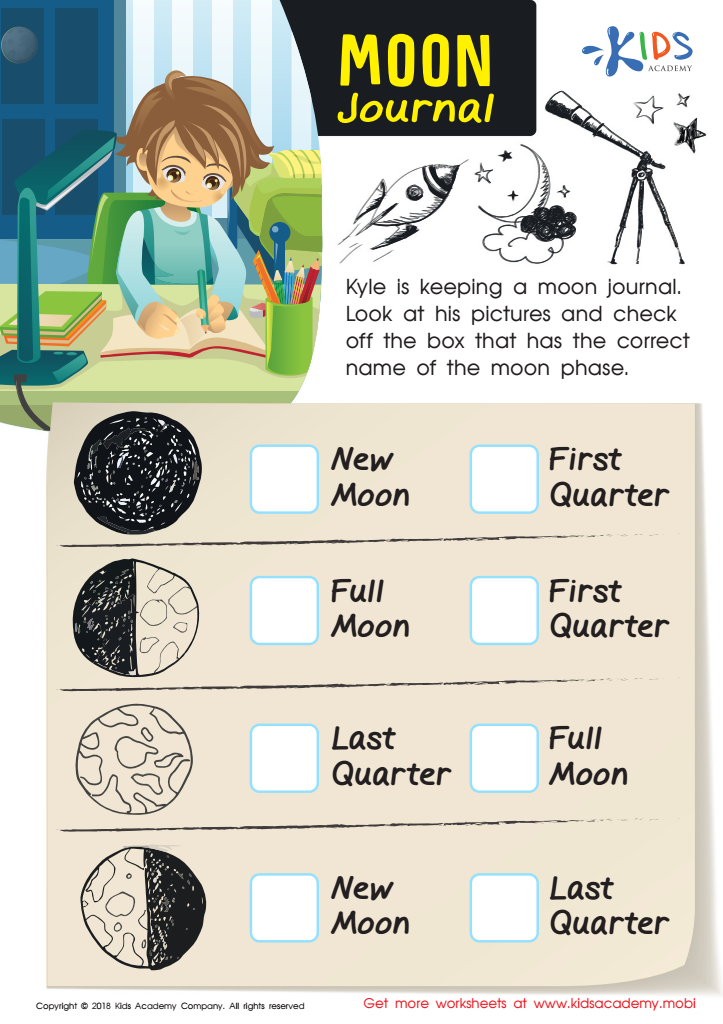

Moon Journal Worksheet
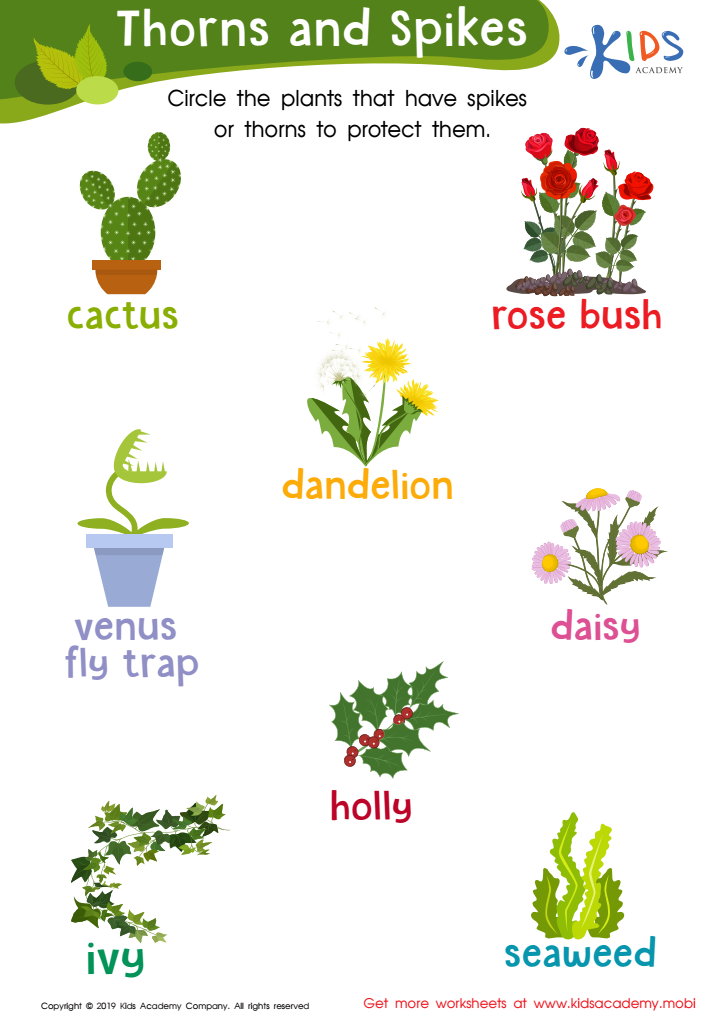

Thorns and Spikes Worksheet
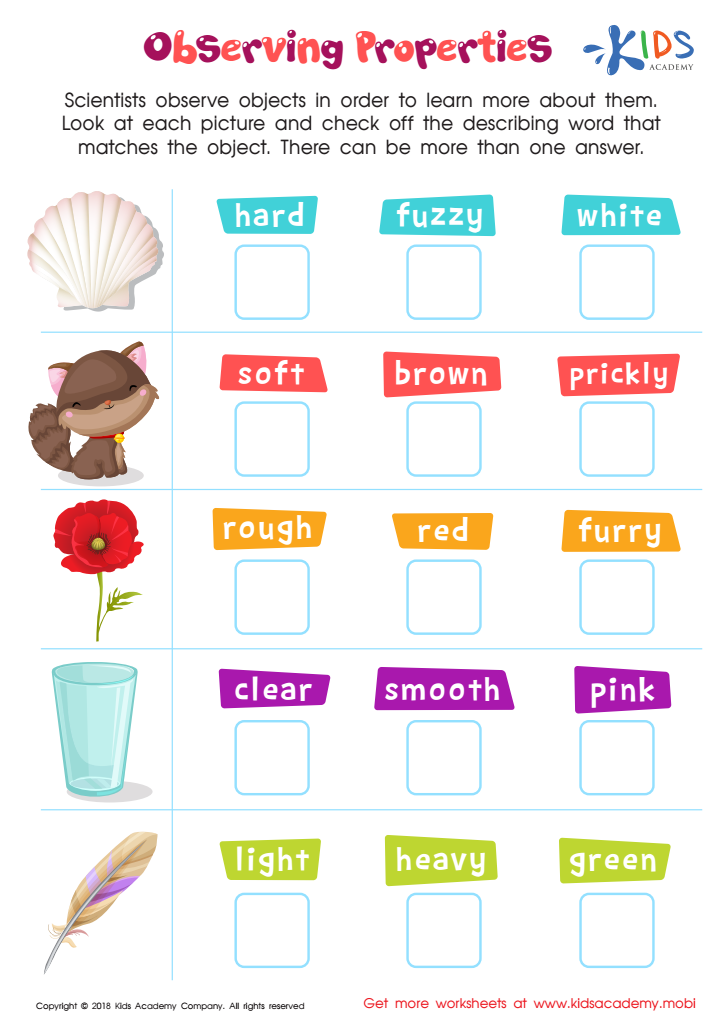

Observing Properties Worksheet
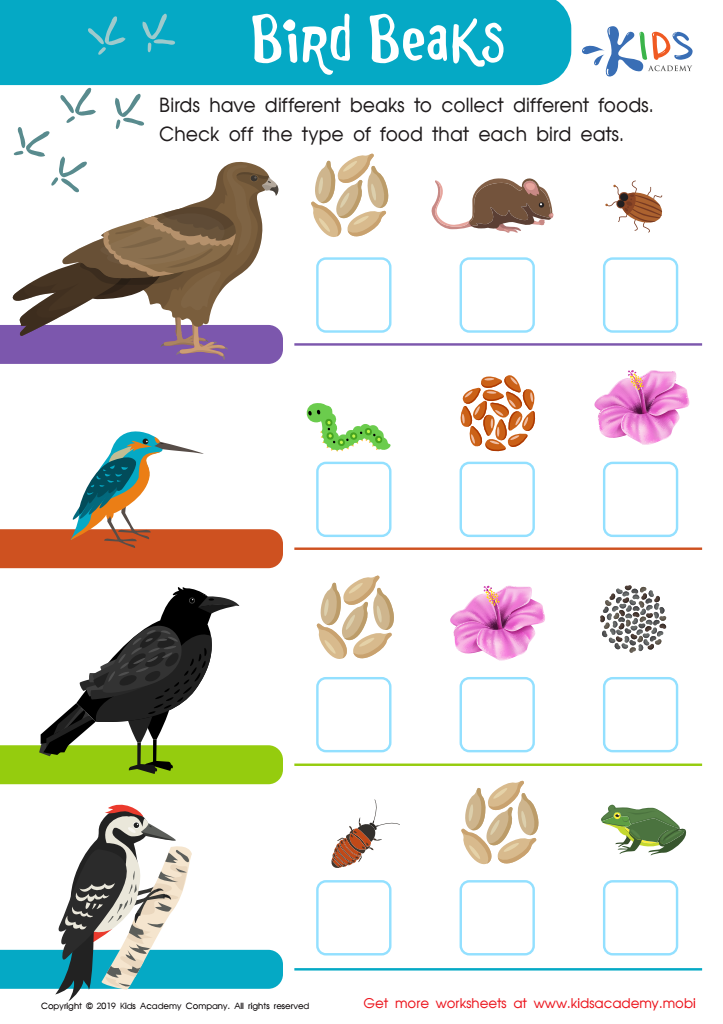

Bird Beaks Worksheet
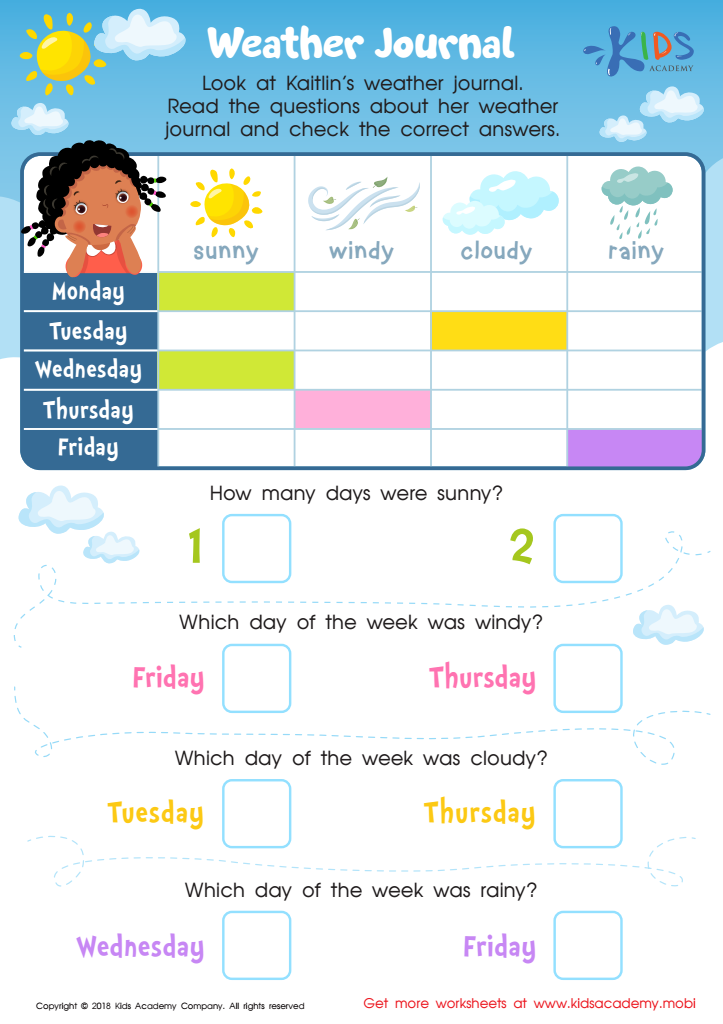

Weather Journal Worksheet
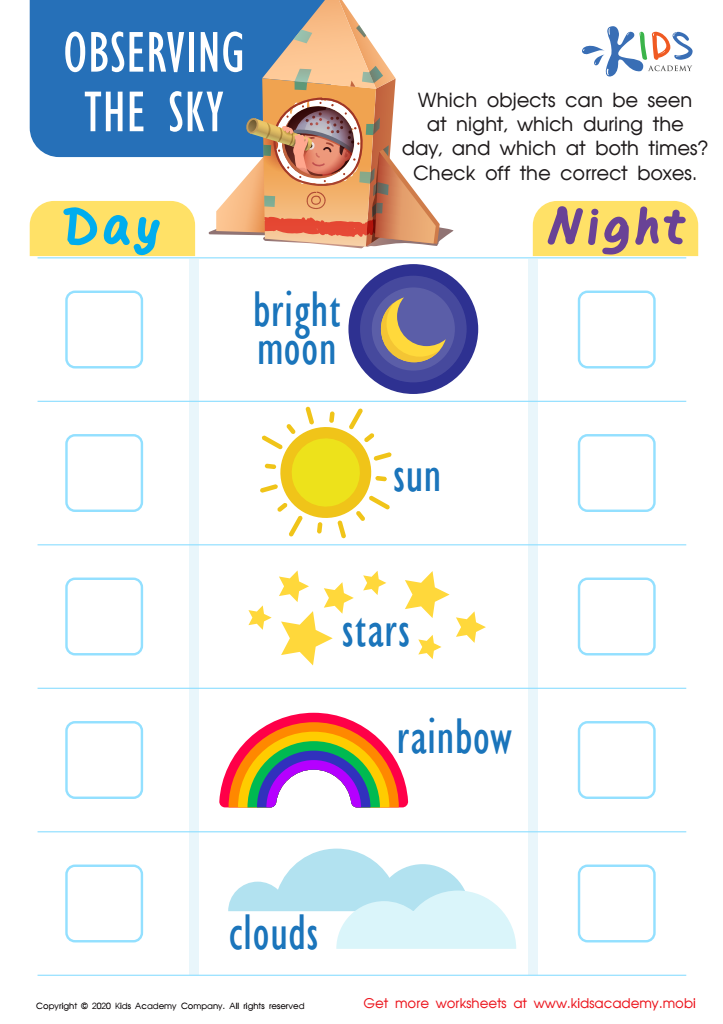

Observing the Sky Worksheet
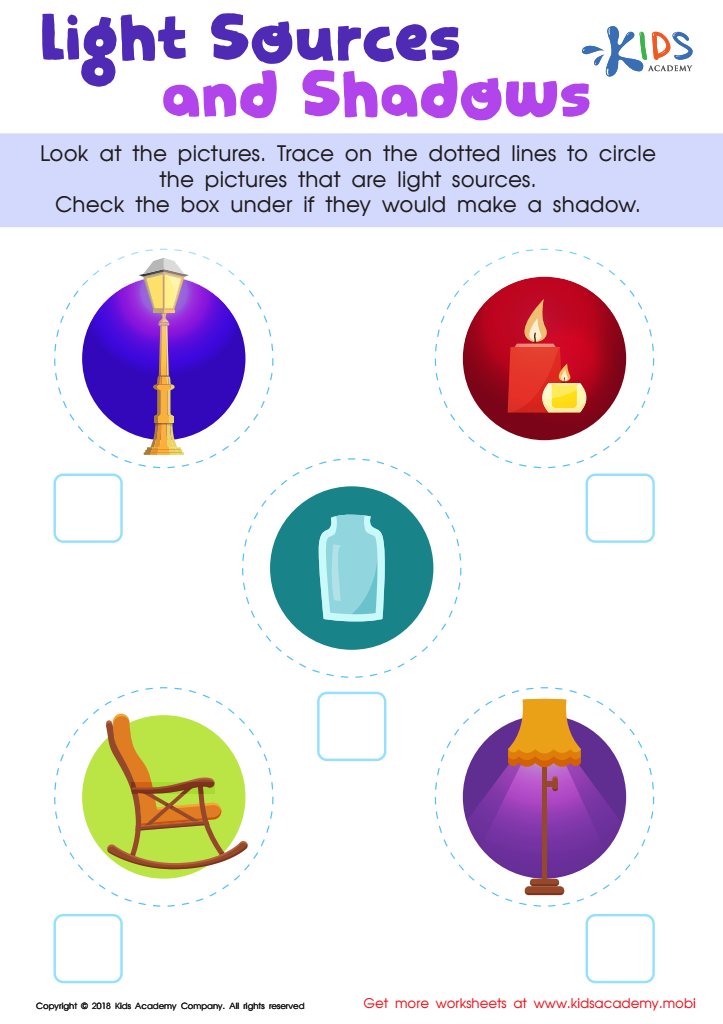

Light Sources and Shadows Worksheet
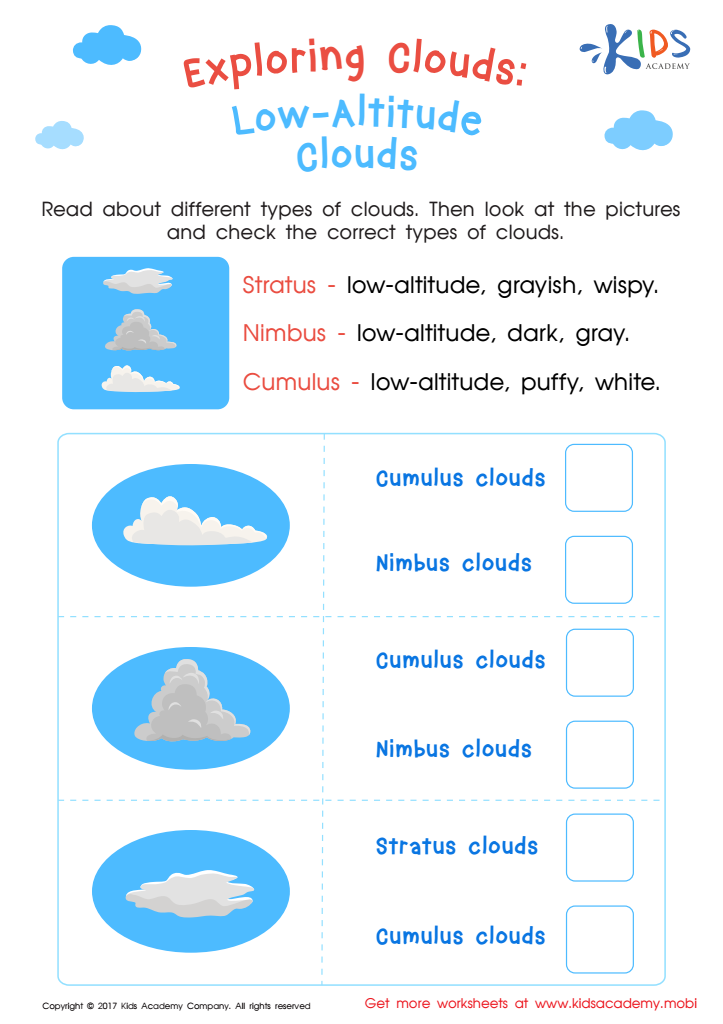

Exploring Clouds: Low Altitude Clouds Printable
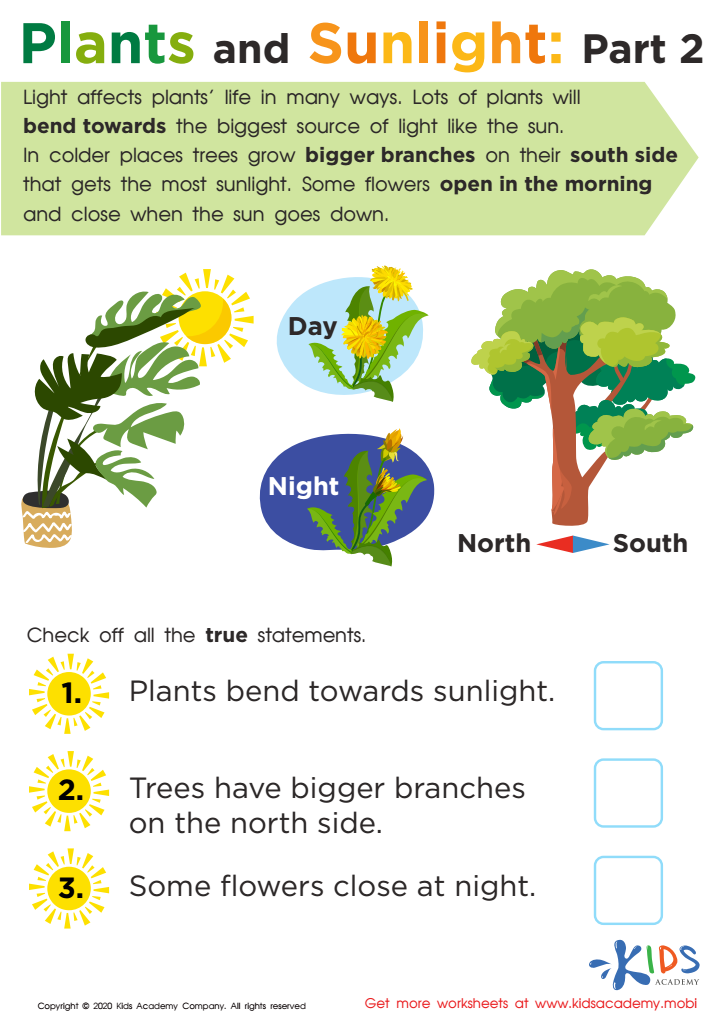

Plants and Sunlight: Part 2 Worksheet
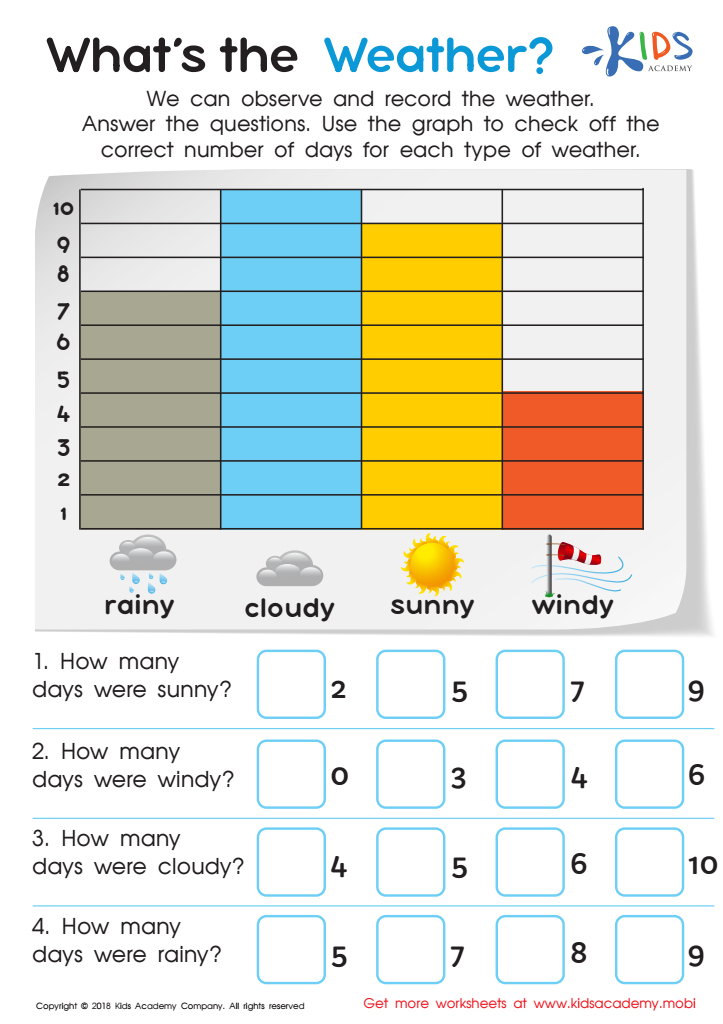

What's the Weather? Worksheet
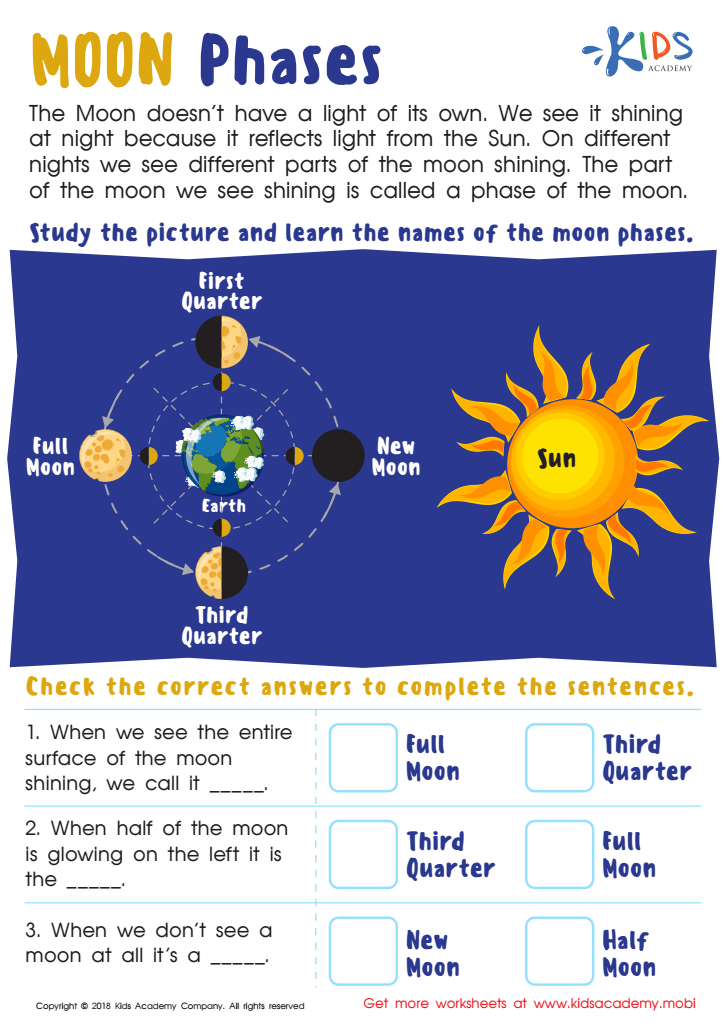

Moon Phases Worksheet
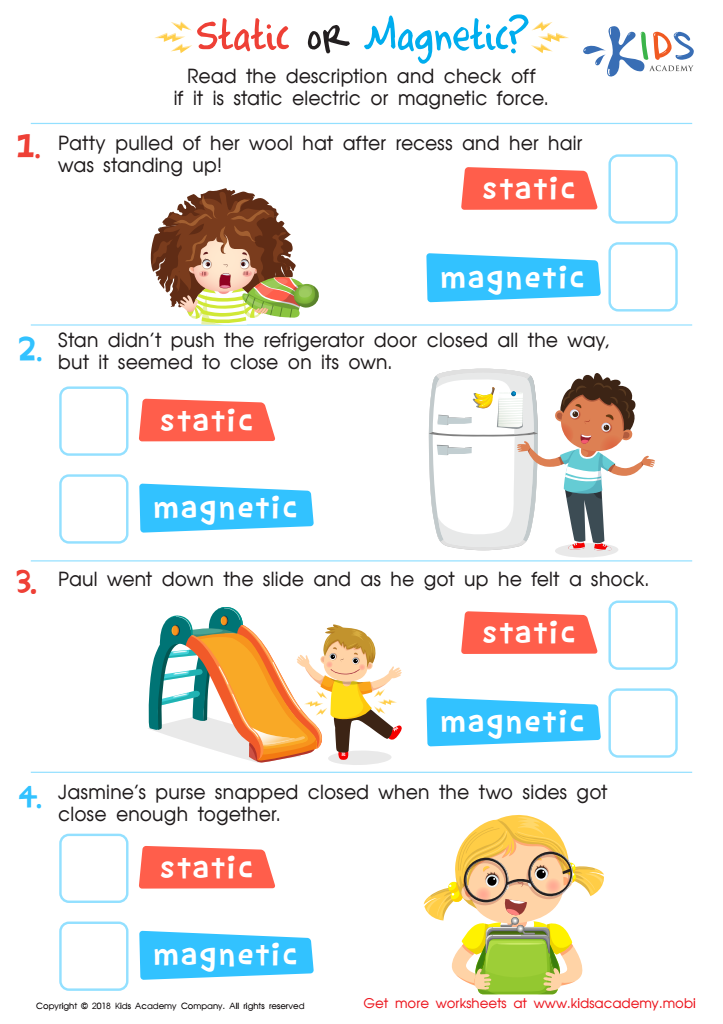

Static or Magnetic Printable Worksheet


Animals and Plants: Assessment 1 Worksheet
Observational skills, often framed as "Normal Science," are crucial for children aged 3-9 as they lay the foundation for critical thinking and lifelong learning. At this stage, children are naturally curious and eager to explore their environments. Encouraging observational skills allows them to engage with the world actively, fostering a sense of inquiry and wonder.
When parents and teachers emphasize observation, they help children develop key cognitive abilities such as analysis, comparison, and classification. These skills enable children to ask questions, seek evidence, and make connections—important components of scientific literacy. Additionally, observational skills enhance language development as children learn to articulate their findings and share discoveries with peers and adults.
Moreover, these skills support social-emotional growth. As children observe their surroundings and the behaviors of others, they develop empathy, perspective-taking, and communication skills, which are vital in building relationships. Facilitating observational learning through guided activities—like nature walks, simple experiments, or creative play—can lead to enriched discussions and deeper understanding of complex concepts.
Overall, fostering observational skills nurtures not just future scientists, but well-rounded individuals capable of critical thinking and effective communication, making it essential for parents and educators alike to prioritize this aspect of development.

 Assign to My Students
Assign to My Students







